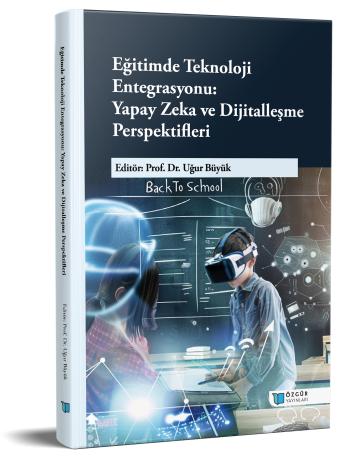
Autonomous Learning and Artificial Intelligence in Open and Distance Education
Chapter from the book:
Büyük,
U.
(ed.)
2025.
Technology Integration in Education: Artificial Intelligence and Digitalization Perspectives.
Synopsis
This section explains the relationship between autonomous learning skills, which enable learners in open and distance education to learn independently, and artificial intelligence. Autonomous learning and artificial intelligence (AI) are technologies that transform open and distance education by increasing the learner's independence and personalising the educational experience. With the development of digital technologies and their active use in the education system, learners have begun to take an active role in their learning journeys. Along with technological developments and a paradigm shift, the educational approach that has been adopted until now is being replaced by a flexible educational approach that appeals to individuals of all age groups and offers options. This new educational approach has a structure that is shaped according to the conditions, interests, desires, expectations, and characteristics of the individual. Furthermore, within this new approach, the education system encompasses autonomous learning gains, where individuals can take responsibility for their learning, construct knowledge themselves, evaluate themselves in their own learning processes, and put their learning skills to use. The positive relationship between autonomous learners and artificial intelligence (AI) in open and distance education is of great importance in terms of personalising education, developing learners' independent learning skills, and making the learning process more efficient. An autonomous learner is an individual who can manage their own learning process, set goals, use their time effectively, and be active in their learning journey. Artificial intelligence, on the other hand, is a technology that provides powerful tools to support and facilitate this process. Autonomous learners need to have the ability to use these powerful tools in order to be successful in open and distance education because by using these tools, autonomous learners will be able to make the education process more efficient, personalised and accessible. Artificial intelligence, which has certain limitations as well as positive aspects, can contribute both positively and negatively to autonomous learners. Therefore, in the new learning process that we can call hybrid intelligence, which is a combination of artificial intelligence and human intelligence, autonomous learners can manage their own learning processes, develop in areas where they are lacking, and increase their academic success and lifelong learning skills by accessing the most appropriate content.

